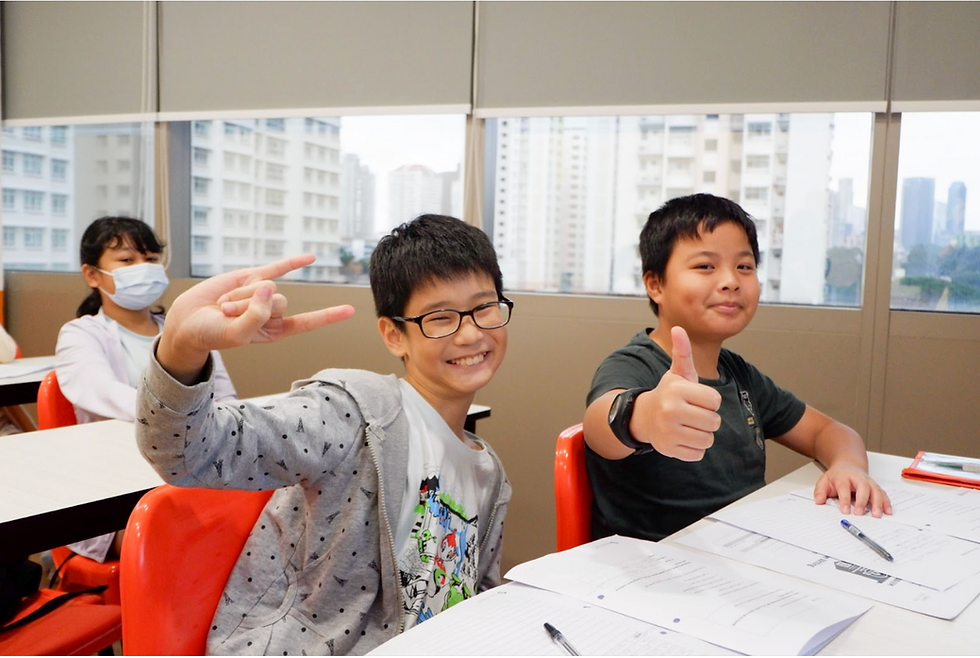Mastering Pronunciation: Commonly Mispronounced Words Among Students
- AGrader Learning Centre
- Nov 21, 2023
- 3 min read

Effective communication relies not only on solid grammar skills but also on clear and accurate pronunciation. Mispronouncing words can lead to misunderstandings and hinder one's confidence in speaking. Among students, mastering pronunciation is crucial to developing strong language skills. This article will explore commonly mispronounced words among students and guide how to improve pronunciation for more effective and confident communication.
The Importance of Proper Pronunciation
Before delving into commonly mispronounced words, it's essential to understand the significance of proper pronunciation. Correct pronunciation enhances not only language fluency but also overall communication skills. It promotes clarity and confidence in speaking, which can be valuable in academic and real-life settings.

Words Commonly Mispronounced
While English is a versatile language, it also presents challenges due to its irregularities in spelling and pronunciation. Here are some commonly mispronounced words among students:
1. "Library"
Mispronunciation: Many students pronounce it as "lie-berry."
Correct Pronunciation: The correct pronunciation is "lie-bruh-ree."
2. "February"
Mispronunciation: Often pronounced as "Feb-you-ary."
Correct Pronunciation: The correct pronunciation is "Feb-roo-ary."
3. "Often"
Mispronunciation: Frequently pronounced as "off-ten" with the "t" sound.
Correct Pronunciation: The correct pronunciation is "off-en."
4. "Nuclear"
Mispronunciation: Commonly mispronounced as "new-cue-lar."
Correct Pronunciation: The correct pronunciation is "new-klee-ar."
5. "Mischievous"
Mispronunciation: Often pronounced as "mis-chee-vee-us."
Correct Pronunciation: The correct pronunciation is "mis-chuh-vuhs."
6. "Water"
Mispronunciation: Frequently pronounced as "wah-ter."
Correct Pronunciation: The correct pronunciation is "wuh-ter."
7. "Television"
Mispronunciation: Often pronounced as "tee-vee-sion."
Correct Pronunciation: The correct pronunciation is "tel-uh-vizh-uhn."
8. "Mango"
Mispronunciation: Pronounced as "man-go" with a flat tone.
Correct Pronunciation: The correct pronunciation is "mang-go" with a rising tone on the first syllable.
9. “Three”
Mispronunciation: we frequently end up saying "tree" or "tink"
Correct pronunciation: Th-ree
10. "Vegetable"
Mispronunciation: Veh-ji-table
Correct pronunciation: Vej-tuh-bul

How to Improve Pronunciation
Practice with Audio Resources
One effective way to improve pronunciation is by listening to native speakers. This exposure to natural speech patterns helps students understand the correct intonation and stress on words. Utilise audio resources like podcasts, audiobooks, and language learning apps that provide audio clips of native speakers.
Record Yourself
Recording your speech is a valuable self-assessment tool. Listen to your recorded speech and compare it to native speakers' pronunciation. This self-awareness can help identify areas that require improvement. You can also track your progress over time.
Use Pronunciation Apps
Numerous pronunciation apps are designed to assist students in improving their pronunciation skills. These apps offer interactive exercises, feedback, and practice sessions. Some popular options include "Elsa Speak" and "Pronunciation Power."
Engage in Conversational English
Participating in real conversations with native speakers is one of the most effective ways to enhance pronunciation. Join language exchange programs, or language clubs, or find language partners who can provide real-time feedback on your speech.
Take Pronunciation Classes
Consider enrolling in pronunciation classes or engaging a language tutor specialising in pronunciation. These classes often provide personalised guidance and targeted exercises to address specific pronunciation challenges

Mastering pronunciation is an integral part of language development for students. Whether you're a student striving for clear and confident speech or a parent and educator guiding a young learner, understanding the significance of proper pronunciation is essential. By recognising commonly mispronounced words and taking proactive steps to improve pronunciation, students can enhance their language skills and effectively communicate in a global context.
Addressing regional influences, such as Singlish and multilingualism, is equally important to ensure accurate pronunciation in diverse linguistic environments. Remember, clear pronunciation is the key to effective communication and language mastery.
Unlock your child's potential with AGrader Learning Centre English Programme. It is meticulously delivered in a step-by-step approach to help students master English confidently. Enrol your child today to develop their effective writing and oral skills, enhance their language appreciation and mastery, and instil the confidence they need to excel in school examinations. Give your child the advantage they deserve – choose AGrader Learning Centre for a brighter academic future.








Comments